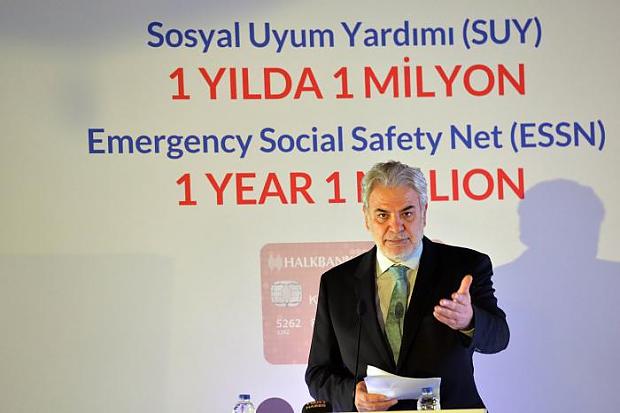EU aid to Turkey is a shambles
EU aid to Turkey is a shambles

The European Court of Auditors always expresses itself politely, but read the special report which appeared just this week and you'll see that the use of the €3 billion paid to Turkey as aid for the refugees there has been extremely badly organised. The emphasis lay primarily on the contracts for distribution of the money, but what was missing was a clear vision of where needs were greatest and of whether the overheads calculated by the Turkish authorities were realistic. You got the impression that the European Commission's prime goal was to show that the EU had really done something about this financial support and that relations with Turkey were more important than was helping the refugees. Now the Turkish president, Erdogan is demanding still more money. I agree with the court of Auditors that first of all they should put their books in order. We don't want to offer a bottomless pit.
A few examples: a billion was spent on direct financial support for refugees living outside the camps. Monitoring this money was made more difficult by the fact that from the word go the EU had no idea as to who would be considered for this financial aid, intended to pay for food and accommodation. Moreover, the aid was sliced so finely that a great deal of the money was left hanging. A local partner group received €8.9 million for assistance with financial transfers which wasn't needed at all, because these were paid directly, the group having no involvement. Another organisation calculated 7% for 'indirect costs', without specifying what these were. The Court of Auditors were anxious to know how many refugees had received financial aid, but found itself tangled in a web of institutions. Nobody at the European Commission knew, therefore, precisely which refugees had been helped.
The European Commission also faced the problem of the clear-out of officials which Erdogan had instituted, which meant that many projects were delayed or abandoned because the people who were involved in dealing with them had been sacked and locked up. For their part, NGOs were burdened by the restrictions which Turkey imposed on social organisations. To sum up, it was difficult to get on with things and the Turkish governments carried the greatest responsibility for this. Erdogan would be best toning things down in comparison to his recent speech to the UN General Assembly, in which he fairly roared that the EU must cough up a great deal more. We weren't born yesterday. That's what the Court of Auditors is in reality saying too, though a little more diplomatically.
- See also:
- Dennis de Jong
